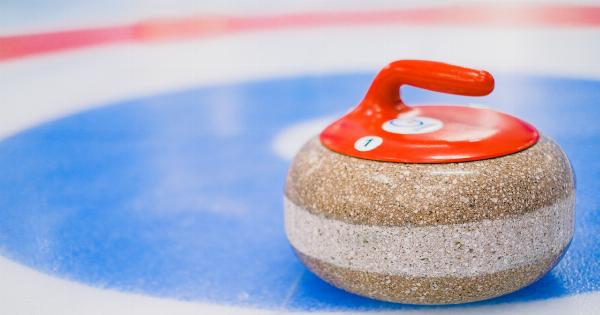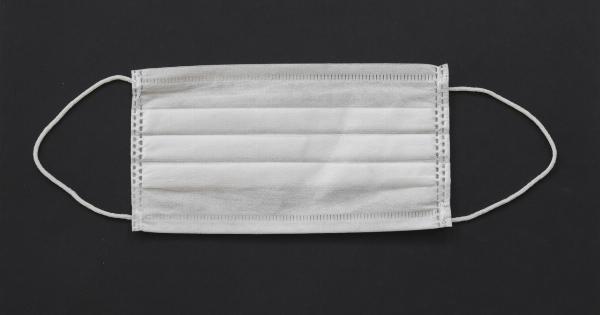Pharyngitis, commonly known as a sore throat, is an inflammation in the pharynx. It can be caused by viruses, bacteria, allergens, or environmental factors.
The symptoms include a scratchy or painful throat, difficulty swallowing, swollen glands, and sometimes fever. Recovery can take several days or even weeks, but there are ways to speed up the healing process. Here are 30 ways to speed up recovery from pharyngitis:.
1. Rest Your Voice
One of the best ways to speed up the recovery from pharyngitis is by resting your vocal cords. Talking, singing, or shouting can aggravate the inflammation and delay healing.
It’s recommended to limit your speaking and to use your voice only when necessary. You may also want to avoid whispering as it can strain the vocal cords.
2. Hydrate
Staying hydrated is essential for combating pharyngitis. Drinking plenty of fluids can help soothe the throat and prevent dryness, which can worsen the symptoms.
It’s recommended to drink at least eight glasses of water a day and to avoid alcohol and caffeine, which can dehydrate you.
3. Use a Humidifier
Dry air can make a sore throat worse. Adding moisture to the air can help soothe the symptoms and speed up healing. A humidifier can help humidify your home or office and provide relief from dry throat, cough, and congestion.
4. Gargle Salt Water
Gargling with warm salt water can help alleviate the symptoms of pharyngitis. Salt water can reduce inflammation, flush out bacteria and mucus, and soothe the throat.
To make the solution, mix a teaspoon of salt in a cup of warm water and gargle for 30 seconds.
5. Suck on Ice Cubes
Sucking on ice cubes can help soothe a sore throat and reduce inflammation. The coldness of the ice can numb the pain and reduce swelling. You may also want to try sucking on ice popsicles or frozen fruit juice.
6. Take Over-the-Counter Medications
Over-the-counter medications can help relieve the symptoms of pharyngitis. Pain relievers such as acetaminophen or ibuprofen can help reduce pain and fever. Throat lozenges or sprays can help numb the throat and provide temporary relief.
Decongestants or antihistamines can help alleviate congestion and postnasal drip.
7. Avoid Smoking and Secondhand Smoke
Smoking and secondhand smoke can irritate the throat and worsen the symptoms of pharyngitis. It’s recommended to avoid smoking and to stay away from smokers. If you’re a smoker, consider quitting or reduce the number of cigarettes you smoke.
8. Avoid Spicy or Acidic Foods
Eating spicy or acidic foods can irritate the throat and worsen the symptoms of pharyngitis. It’s recommended to avoid hot sauce, pepper, citrus fruits, tomatoes, and other acidic or spicy foods.
You may want to opt for soft, bland, and easy to swallow foods such as soup, yogurt, mashed potatoes, and scrambled eggs.
9. Use Steam Inhalation
Steam inhalation can help loosen mucus, reduce inflammation, and soothe the throat. You can inhale steam from a bowl of hot water, a hot shower, or a facial steamer.
You may also want to add essential oils such as peppermint, eucalyptus, or tea tree oil for added benefits.
10. Use a Throat Spray
A throat spray can help alleviate the symptoms of pharyngitis by providing a numbing or cooling effect on the throat. You can find throat sprays in most drugstores or online. It’s recommended to read the label and follow the instructions carefully.
11. Try Honey
Honey has antibacterial and anti-inflammatory properties that can help reduce inflammation and soothe the throat. You can add a tablespoon of honey to warm water or tea and drink it several times a day.
You may also want to try honey lozenges or honey ginger shots for added benefits.
12. Avoid Dairy Products
Dairy products can cause mucus production and worsen the symptoms of pharyngitis. It’s recommended to avoid milk, cheese, yogurt, and other dairy products until you recover.
You may want to opt for non-dairy alternatives such as almond milk, soy milk, or coconut milk.
13. Use a Nasal Rinse
A nasal rinse can help alleviate the symptoms of pharyngitis by flushing out the mucus and bacteria from your sinuses. You can use a saline nasal spray or a neti pot to rinse your nasal passages.
It’s recommended to use distilled or sterilized water to prevent infection.
14. Avoid Alcohol
Alcohol can dehydrate you and worsen the symptoms of pharyngitis. It’s recommended to avoid alcohol until you recover. You may want to opt for non-alcoholic alternatives such as herbal tea, fruit juice, or sparkling water.
15. Get Enough Sleep
Getting enough sleep is crucial for speeding up the recovery from pharyngitis. Sleep can boost your immune system and help your body fight off the infection.
It’s recommended to aim for 7-9 hours of sleep per night and to avoid caffeine or screen time before bedtime.
16. Use a Steamy Shower
A steamy shower can help relieve the symptoms of pharyngitis by providing moisture to the air and soothing the throat. You may also want to breathe in the steam from a bowl of hot water or a hot towel.
Adding essential oils such as lavender, chamomile, or frankincense can enhance the benefits.
17. Try Licorice Root
Licorice root has anti-inflammatory and antimicrobial properties that can help alleviate the symptoms of pharyngitis. You can drink licorice root tea or take licorice root supplements.
However, it’s recommended to consult with your healthcare provider before taking any supplements.
18. Apply Heat or Cold
Applying heat or cold can help reduce inflammation and relieve pain. You can apply a warm compress or a cold pack on your throat for 15-20 minutes several times a day.
However, it’s recommended to avoid applying heat or cold directly on your skin to prevent burns or frostbite.
19. Eat Soft Foods
Eating soft and easy-to-swallow foods can help alleviate the symptoms of pharyngitis. You may want to opt for soup, mashed potatoes, oatmeal, or smoothies. Avoid hard, crunchy, or spicy foods that can irritate the throat.
20. Add Herbs and Spices
Adding herbs and spices to your foods can provide anti-inflammatory and antimicrobial benefits. You may want to add garlic, ginger, thyme, oregano, or turmeric to your soups, stews, or tea.
However, it’s recommended to consult with your healthcare provider before taking any herbs or supplements.
21. Use a Warm Mist Humidifier
A warm mist humidifier can help soothe the throat and provide relief from pharyngitis. The warm mist can provide added benefits for congestion, cough, and dry skin.
It’s recommended to clean your humidifier regularly and to follow the instructions carefully.
22. Take a Steamy Bath
A steamy bath can help provide moisture to the air and enhance relaxation. You may also want to add Epsom salt, baking soda, or essential oils such as lavender, chamomile, or frankincense to your bath water for added benefits.
However, it’s recommended to avoid hot water that can dehydrate your skin.
23. Use a Throat Coat Tea
A throat coat tea can help soothe the throat and provide relief from pharyngitis. You can find throat coat teas in most drugstores or online. It’s recommended to read the label and follow the instructions carefully.
Some throat coat teas may contain herbs or supplements that can interact with certain medications.
24. Try Echinacea
Echinacea has immune-boosting and anti-inflammatory properties that can help alleviate the symptoms of pharyngitis. You can take echinacea supplements or drink echinacea tea.
However, it’s recommended to consult with your healthcare provider before taking any supplements.
25. Use a Neck Wrap
A neck wrap can help provide heat and pressure to the neck and reduce inflammation and pain. You can use a reusable microwavable neck wrap or a fleece neck wrap.
However, it’s recommended to avoid wearing a neck wrap for a prolonged period or while sleeping to prevent burns or discomfort.
26. Take a Warm Soup
A warm soup can help provide hydration, nutrients, and comfort during pharyngitis. You may want to opt for chicken noodle soup, tomato soup, or vegetable soup. Adding herbs, spices, or chicken broth can enhance the benefits.
However, it’s recommended to avoid soups that contain dairy or spicy ingredients.
27. Try Slippery Elm
Slippery elm has mucilage that can coat and soothe the throat and reduce inflammation. You can take slippery elm supplements or drink slippery elm tea.
However, it’s recommended to consult with your healthcare provider before taking any supplements.
28. Use a Cooling Pad
A cooling pad can help reduce pain and inflammation by providing a cooling sensation to the neck and throat. You can use a reusable cold pack or a gel cooling pad.
However, it’s recommended to avoid wearing a cooling pad for a prolonged period or while sleeping to prevent discomfort.
29. Try Marshmallow Root
Marshmallow root has mucilage that can coat and soothe the throat and reduce inflammation. You can take marshmallow root supplements or drink marshmallow root tea.
However, it’s recommended to consult with your healthcare provider before taking any supplements.
30. Stay Positive
Maintaining a positive attitude and mindset can help speed up the recovery from pharyngitis. Stress and anxiety can weaken the immune system and delay healing. You may want to practice relaxation techniques such as meditation, yoga, or deep breathing.
You may also want to seek support from your friends, family, or healthcare provider.





























